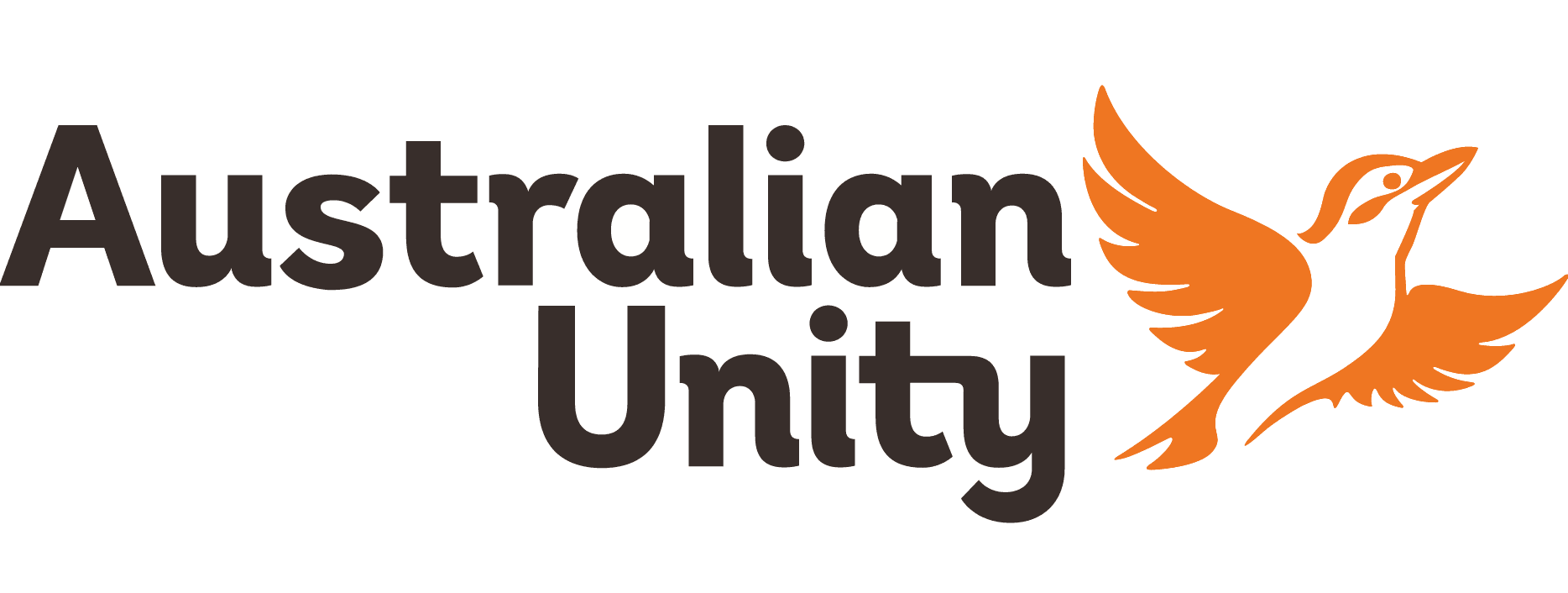If you are planning to work in Australia on a 457 working visa, you will need to take out an Overseas Visitors Health Cover (OVHC) policy for 3 main reasons:
- To satisfy the 457 visa eligibility criteria (specifically the 8501 condition) which requires you to have adequate health insurance
- To avoid costly medical fees for services that won't be covered by the public health system (Medicare)
- To ensure that you can access the medical care you need while in Australia
The good news is that there are several options available for working visitors looking for 457 visa-compliant health insurance. Here’s how to find the right policy for you, no matter your specific needs or budget.
Compare other products
We currently don't have that product, but here are others to consider:
How we picked theseFinder Score for overseas health insurance
To make comparing overseas health insurance even easier, we developed the Finder Score. Factors like price, hospital cover, extras cover, emergency travel, and more are weighted and scaled across 50+ policies from 15+ providers to produce a score out of 10. The higher the score, the more competitive the policy.
Pricing is based on a single live in the State of New South Wales on a visa and is not from a country that Australia has a Reciprocal Health Care Agreement (RHCA) with and is not eligible for cover under Medicare. Prices are accurate for 2025 but are subject to change.
What is OVHC?
Overseas visitors health cover is, as its name suggests, health insurance cover specifically designed for overseas visitors to Australia. As most foreign visitors to Australia are unable to enrol in Medicare, Australia’s public health system, they need to take out private health insurance to cover any medical costs they incur while in Australia.
Without the protection of an OVHC policy, overseas visitors could face extensive out-of-pocket costs for any treatment they receive through Australia’s medical system.
What is the 457 visa?
The 457 visa is more formally known as the Temporary Work (Skilled) visa (subclass 457). It is designed to let a skilled overseas worker travel to Australia to work in their nominated occupation for an approved sponsor over a period of up to four years.
Finder survey: On average, how long have people had Overseas Visitor Health Cover?
| Response | |
|---|---|
| 1 | 27.27% |
| 2 | 27.27% |
| 4 | 18.18% |
| 5 | 18.18% |
| 3 | 9.09% |
What are the 457 visa health insurance requirements?
To qualify for a 457 visa you will need to have adequate health insurance for the duration of your stay – this is commonly known as visa condition 8501. You can buy 457 visa health insurance from an insurer based in Australia or in your home country.
If you decide to purchase OVHC from an Australian insurer, in order to be 457 visa compliant your policy must meet the following criteria:
- Provide benefits that are at least equivalent to public hospital cover. This includes theatre, intensive care, labour ward and ward drug costs, as well as emergency department fees that lead to a hospital admission
- Cover day surgery accommodation and treatment
- Cover some surgically-implanted prosthetic devices
- Include ambulance cover
- Cover all Pharmaceutical Benefits Scheme (PBS)-listed medications
- Cover all medical services listed under the Medicare Benefits Schedule (MBS)
How do I show that I have adequate health insurance for my visa?
You’ll need to provide the Department of Immigration and Border Protection (DIBP) with a letter from your health insurer confirming that you have met this visa requirement. If necessary, your insurer can access a template letter from the Department’s website.
In other cases, it may be possible to demonstrate that you have adequate health insurance by providing a letter from your employer. This letter should verify that you will be covered by medical insurance that meets the requirements of the 457 visa, as well as include details of the insurance provider and policy.
Does my family need to be covered by the OVHC too?
Yes. DIBP’s 457 visa requirements state that your health insurance must cover you and any members of your family who accompany you to Australia. As is the case for you, cover for your family must remain in place for the duration of your visit to Australia.
If your family members apply for insurance cover separately to you, the visa applicant, they will also need to provide the Immigration Department with a letter confirming that they have adequate health insurance.

"Before we became permanent residents, and eventually citizens, we had overseas cover through Bupa. We were on 457 visas and it required Gold coverage, so this was pricey. We never actually utilised the cover that much outside of dental. We went to Bupa because they had a physical shop, but didn't shop around as we didn't realise we could back then. If I had it to do again, I'd make sure I was on the cheapest deal and have extras through a different provider rather than everything all together."
What happens if I choose not to comply with visa condition 8501?
Choosing not to comply with the health insurance requirement is simply not an option for most overseas visitors. If you can’t provide proof that you have adequate health insurance to cover you for the length of your stay in Australia, you won’t be granted a 457 visa and you won’t be able to enter Australia as planned.
However, if you’re eligible to enrol in Australia’s Medicare system under a Reciprocal Health Care Agreement (RHCA), it’s not mandatory for you to buy private health insurance in order to qualify for a 457 visa.
What’s covered by OVHC policies?
At a minimum, your OVHC policy must provide the same amount of cover that is provided by the Australian public health system to be 457 visa compliant. This includes everything from ambulance transport to hospital accommodation, theatre fees, PBS pharmaceuticals and some surgically-implanted prostheses. However, as this only offers a basic level of cover you may wish to purchase a higher tier OVHC policy, especially if you require maternity services or specialised treatment such as dialysis.
More comprehensive OVHC policies can also provide these additional benefits:
What isn't covered by this type of health insurance?
Like domestic health insurance, most OVHC policies contain restrictions (limited benefits for certain services) and exclusions (no cover for certain services), which vary depending on how comprehensive the cover is.
For example, pregnancy and maternity services are typically only covered in higher levels of OVHC, so if you require this service you may have to take out a more expensive policy and reduce the cost by choosing to pay a higher excess.
You’ll need to check the fine print of your policy for details of the services and treatments excluded from cover. OVHC policies commonly won’t cover:
- Assisted reproductive services (e.g. IVF)
- Elective cosmetic treatments
- Stem cells, bone marrow and organ transplants
- Treatment provided outside of Australia
Should I bother getting extras cover with my OVHC?
There are two different forms of private health insurance in Australia: hospital cover and extras cover. A minimum level of hospital cover is provided by every 457 visa-compliant OVHC policy.
Meanwhile, extras cover is commonly offered as an additional option for overseas visitors. Sometimes also referred to as general treatment or ancillary cover, extras cover is a form of health insurance policy that is designed to cover medical treatments that do not require you to be admitted to hospital, such as visits to the dentist or optometrist.
Many of these services are not covered by Australia's public health system and can be very costly, so you may want to think about taking out extras cover even if you are from an RHCA country.
Depending on how comprehensive your extras cover is, you may be able to claim benefits for the following treatments:
- Major and general dental
- Orthodontic services
- Optical
- Physiotherapy, chiropractic and osteopathy
- Hearing aids
- Health appliances such as hearing aids
- Occupational therapy
- Remedial massage
- Healthy lifestyle programs such as yoga
- Natural therapies such as acupuncture
If you decide to include extras cover with your OVHC policy, make sure to compare the benefits and cover limits offered by a range of insurers.
Pre-existing conditions and waiting periods for OVHC health policies
One important factor you need to be aware of when choosing an OVHC policy is the treatment of pre-existing conditions. A pre-existing condition is any ailment, illness or condition that you had signs or symptoms of during the 6 months before your arrival in Australia, or the 6 months before your visa was granted (whichever occurs later).
While some OVHC policies will exclude treatment for pre-existing conditions altogether, others will impose a waiting period of up to 12 months before any benefit will be paid for the treatment of those conditions.
You should also be aware of any other waiting periods that apply to cover. A waiting period is a length of time you must serve after taking out cover before you will be able to access benefits under your policy. The only waiting periods that can be imposed on OVHC policies are:
- 12 months for pregnancy-related conditions
- 12 months for pre-existing conditions
- 2 months for psychiatric, rehabilitation and palliative care, regardless of whether or not the condition is pre-existing
Who can avoid taking out OVHC?
If you’re an overseas visitor from a country with which Australia has a Reciprocal Health Care Agreement (RHCA), you may be eligible for an exemption from the 457 visa health insurance requirement. RHCAs allow visitors from selected countries to enrol in Medicare once in Australia and receive subsidised health care through Australia’s public health system.
Australia has agreements in place with the following countries:

If you’re visiting Australia from one of the above countries, you can apply for an exemption from the requirement to have private health insurance. However, you can’t enrol in Medicare until you have arrived in Australia, so if you’re applying for a 457 visa from another country you may still have to arrange 457 visa-compliant insurance. Then, once you arrive in Australia, if you successfully enrol in Medicare you can apply to DIBP for an exemption and cancel your OVHC policy.
Should I still consider OVHC even if I’m eligible for Medicare?
While eligible visitors from RHCA countries don’t have to purchase OVHC, it’s still a good idea for all overseas visitors to consider this type of cover. Although RHCAs provide important financial assistance to help some foreign visitors access essential medical care, they still have a number of limitations.
RHCAs do not provide any cover for:
- Ambulance transportation
- Dental care
- Elective surgery
- Medical evacuation to your home country
- Private hospital accommodation and treatment, or treatment as a private patient in a public hospital
- Treatment that is not immediately necessary
These drawbacks mean that even visitors to Australia from RHCA countries should think about taking out OVHC. These policies ensure that you can access a much higher level of cover during your stay down under.
Complete list of visitors health insurance providers
| Health fund | Hospital cover for 457 visa holders | Extras cover available or included? |
|---|---|---|
| Allianz Care Australia |
|
|
| Australian Unity |
|
|
| Bupa |
|
|
| Frank Health Insurance |
|
|
| hbf |
|
|
| HCF |
|
|
| hif |
|
|
| nib |
|
|
How to compare 457 visa health insurance policies
Keep the following tips in mind to help you find OVHC that’s right for you:
- Check what’s covered. Read the fine print to find out the services, treatments and expenses that a policy covers.
- Check the restrictions and exclusions. The insurer may only pay restricted benefits for some services listed as being covered by your policy, so make sure you’re aware of this before you apply. Remember, too, to check the list of services and treatments excluded from cover.
- Consider the highest level of cover. It’s a good idea to consider buying the highest level of OVHC you can afford, as this is the best way to minimise or even eliminate out-of-pocket costs if you require medical treatment in Australia.
- Consider extras cover. Adding extras cover to your OVHC can help further reduce out-of-pocket health care costs while you’re in Australia. If you decide to include extras, read the fine print to find out exactly what your policy covers and what limits apply.
- Make sure it’s visa compliant. You’ll need to be certain that any policy you choose is fully compliant with the 457 visa requirements, so make sure it is advertised as such by the insurer.
- Extras only: $44
- Basic: $105
- Bronze: $152
- Silver: $179
- Gold: $260
Commonly asked questions about visa 457 health insurance
Compare 457 working visa insurance from participating health funds
More guides on Finder
-
8501 visa condition
The 8501 visa condition means you need to get health insurance for your stay.
-
600 visa health insurance
Get cover quickly and easily for your stay in Australia.
-
590 Student Guardian Visa Health Insurance
Find out what health insurance you need for the 590 Visa and how to get cover for pre-existing conditions.
-
Medibank Overseas Visitor Health Cover
Compare overseas visitors cover from Medibank.
-
408 Visa Health Insurance
Everything you need to know about the health insurance requirements of the 408 visa and how to find the right cover.
-
Working holiday health insurance
Everything you need to know about the health insurance requirements of the 417 visa and how to find the right cover.
-
nib Overseas Visitor Health Cover (OVHC)
View a range of NIB overseas visitors health insurance policies.
-
Health insurance for parents visiting Australia
If your parents are planning to visit you in Australia from another country, they will first need an appropriate visa, and secondly need health insurance while they are here. This guide explains how to do both.
-
Compare Overseas Student Health Cover
If you’re an international student travelling to Australia on a student visa, you’ll need to take out Overseas Student Health Cover (OSHC).
-
HCF Overseas Visitor Health Cover Review
HCF Overseas Visitor Health Cover offers hospital and optional extras cover for overseas visitors who are eligible to work in Australia but who are not covered by Medicare.

